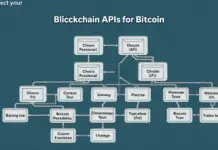Introduction: What Are Smart Contracts?
Did you know that over 60% of blockchain projects utilize smart contracts in some form? These self-executing contracts are pivotal in the digital currency world. However, many people find themselves puzzled about how they truly work. In this guide, we will break down the essentials of smart contracts tailored for non-developers, focusing on their functionality, benefits, and real-world applications.
Understanding Smart Contracts: The Basics
At its core, a smart contract is a set of rules encoded on a blockchain. Think of it as a digital agreement that automatically executes when certain conditions are met. For example, if you’ve ever used an vending machine, you’ve interacted with a kind of smart contract—putting in coins to receive a product!
How Do Smart Contracts Work?
- Distributed Ledger: Smart contracts operate on a blockchain, ensuring that all transactions are transparent and immutable.
- Self-Execution: They execute automatically without the need for intermediaries, reducing costs and speeding up processes.
- Security: Once deployed, altering a smart contract is nearly impossible, which helps maintain the integrity of transactions.
Real-World Applications of Smart Contracts
Smart contracts can revolutionize various industries without needing to be a developer. Here are a few real-life examples:

- Supply Chain Management: Tracking the provenance of goods can be enhanced through smart contracts that verify each step of the journey.
- Real Estate Transactions: Smart contracts can simplify buying, selling, and leasing properties by automatically transferring ownership once payment is verified.
- Insurance Claims: Automating payouts when predefined conditions are met can streamline processes and eliminate fraud.
Benefits of Smart Contracts
For those considering integrating smart contracts into their operations, here are key benefits:
- Efficiency: Automating processes reduces human error and delays.
- Cost-Effective: Eliminating third-party fees decreases overall transaction costs.
- Trustworthy: The transparent nature of the blockchain fosters trust between parties.
How to Get Started with Smart Contracts
If you’re intrigued by how you can implement smart contracts without a coding background, consider these steps:
- Explore platforms like Ethereum or EOS, which offer user-friendly interfaces for creating smart contracts.
- Leverage low-code solutions that allow you to create contracts through simplified visual tools.
- Take advantage of online tutorials and courses tailored for beginners looking to understand blockchain technology and smart contracts.
Conclusion: The Future of Smart Contracts
In summary, smart contracts offer revolutionary solutions by automating and securing transactions across various sectors. As blockchain technology continues to evolve, the demand for these digital agreements will only increase. To get involved, start exploring the platforms and tools that make smart contracts accessible.
Remember: This article does not constitute investment advice; please consult local regulatory guidelines before engaging in any blockchain activities. Also, feel free to explore guides on how to safely store cryptocurrencies!
Learn more about blockchain technology and how it can benefit your business. Join the revolution.
If you’ve enjoyed this guide on smart contract basics and want to dive deeper, consider expanding your knowledge by reading about the 2025 trends in cryptocurrency adoption or how to secure your digital assets.
For navigating the exciting world of digital currencies, remember to check out virtualcurrencybitcoin for the latest insights and resources.
Written by Dr. Jonathan Reyes, a leading blockchain consultant with over 30 published papers and a contributor to numerous successful blockchain audits.




